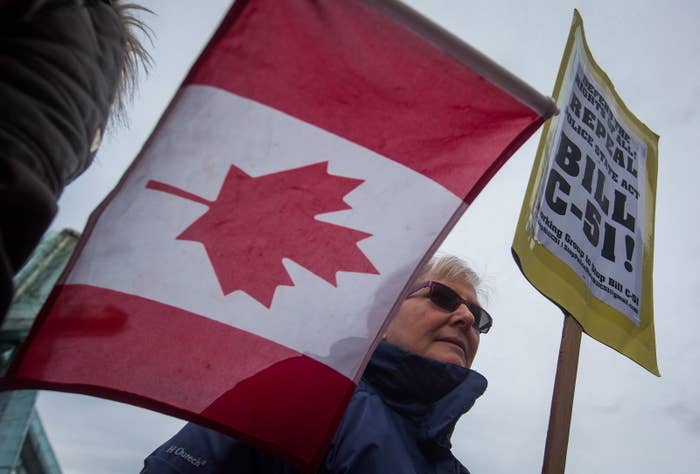
Canada’s domestic intelligence agency sees its new “threat reduction” powers as a tool to disrupt foreign influence, including during the upcoming federal election campaign.
The Canadian Security Intelligence Service (CSIS) told a Toronto Star/BuzzFeed News investigation that it views its “threat reduction mandate” as “another tool” for the federal government to respond to threats including “foreign influenced activity.”
The agency’s mandate allows it to take direct action to “reduce” threats to Canada’s national security and interests, rather than simply collect intelligence. It allows the agency to take an array of actions to disrupt threats, although more invasive actions — such as those that would violate Charter rights or break Canadian laws — require approval from a judge.
“While CSIS cannot discuss the precise nature of our investigations, CSIS actively investigates any threats to Canada’s democratic institutions and supports the [government’s] collective effort to respond accordingly,” wrote agency spokesperson John Townsend in a statement.
Canada’s intelligence community has already identified foreign operations targeting the country’s “democratic institutions” ahead of the Oct. 21 election. The Communications Security Establishment, Canada’s cyberdefense and espionage agency, has assessed that it’s “very likely” foreign actors will attempt to intervene in the election — although not on the scale seen in the 2016 US presidential election.
CSIS was granted “threat reduction” powers by the former Conservative government in anti-terror reforms in 2015.
The Liberal government has reined in those powers, requiring the agency to take only “reasonable” actions “proportionate” to the threat, outlining a list of acceptable disruption activities, and seeking a warrant for any action that violates Charter rights.
For some, the threat-reduction powers are seen as a tailor-made tool to combat a complex threat like foreign interventions in an election campaign — where activities may compromise Canadian national security or democratic institutions, but where it’s unlikely authorities would pursue criminal charges.
“Some of the core concerns around threat disruption is that when it’s used, it might conflict with the possibility of bringing future criminal charges,” said Leah West, a Carleton University professor who previously worked in national security law for the Canadian government.
“Criminal procedure is unlikely to be instigated against [foreign] threat actors … that concern falls away, and threat reduction becomes a more ideal course of action.”
But civil liberties groups have expressed concern about CSIS’s ability to disrupt threats with little public oversight — or even public knowledge — and those concerns are likely to be more pronounced when it comes to intervening during an election period.
Cara Faith Zwibel, a director with the Canadian Civil Liberties Association, said it’s a “fundamental concern” for her organization.
“We outside of the security [agencies] don’t really know what they’re doing, so I don’t know what threat reduction looks like in the election-interference context,” Zwibel said.
“So even for a very laudable objective like ensuring our elections have integrity, we do still have concerns. … There’s not a lot of information about what security services are talking about in terms of what constitutes a threat to the election or, more broadly, sort of threats to democratic institutions.”
Zwibel noted that there’s a broad range of activities CSIS could undertake under the threat-reduction mandate. The agency could, for instance, disrupt communications, interrupt or divert financial transactions, impersonate anyone other than a police officer, even interfere with a person’s movements.
What those actions mean in the context of combating terrorism is clear, but it’s the first time the agency has been asked to disrupt threats in the context of an election.
West said some of those concerns were valid but noted that the more invasive threat-reduction activities that could violate Charter rights or Canadian law require up-front judicial approval and are subject to after-the-fact review by watchdogs.
BuzzFeed News and the Toronto Star are investigating the ways in which political parties, third-party pressure groups, foreign powers, and individuals are influencing Canada’s political debate in the run-up to this fall’s federal election. This report was published as part of that collaboration.


